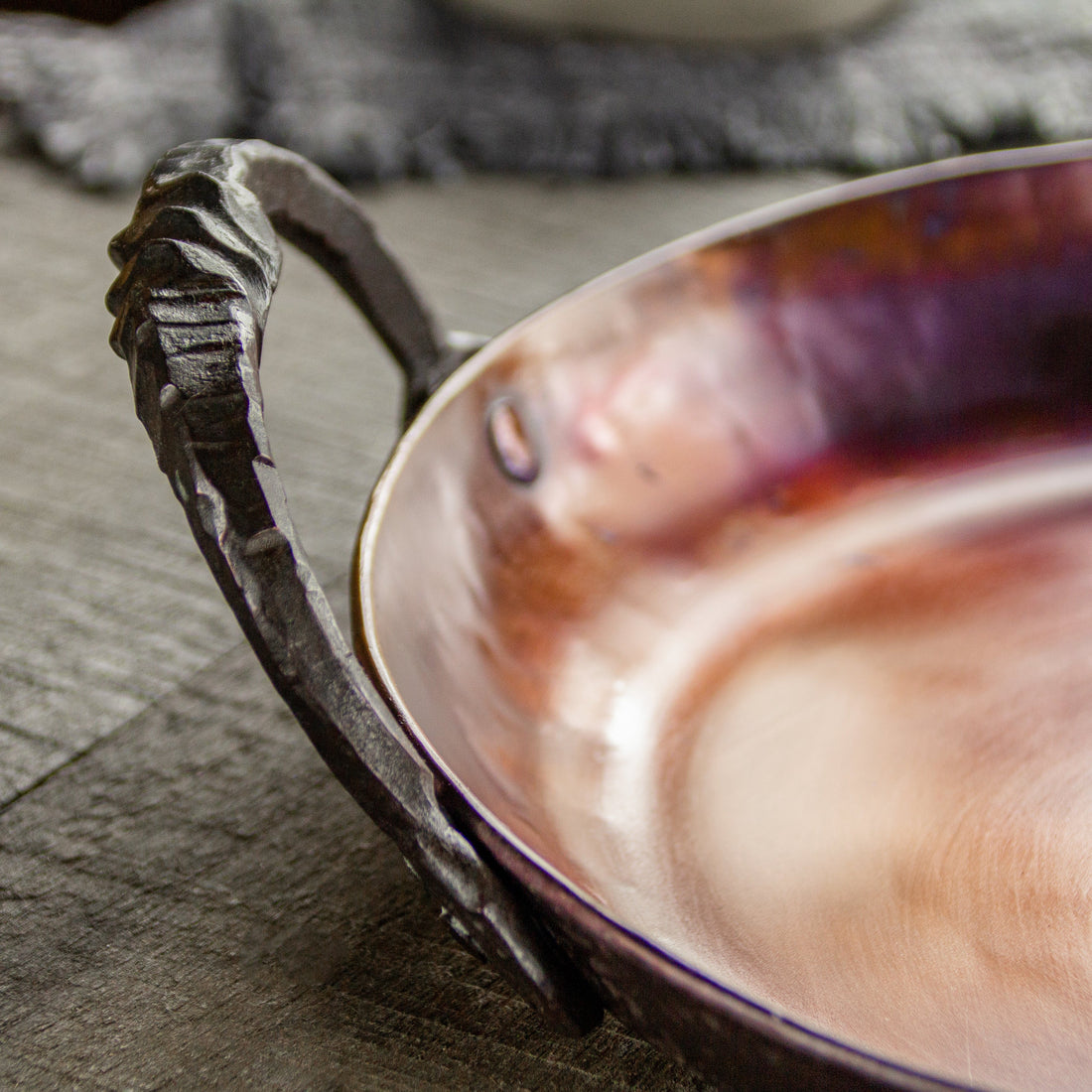
Why Professional Chefs Choose Carbon Steel (And Why You Should Too)
Walk into any professional kitchen and you'll notice the same sight: rows of darkened, well-seasoned metal pans commanding the stovetop. These aren't cast iron pans—they're carbon steel, the cookware industry's most trusted workhorse. Understanding why professional chefs rely exclusively on carbon steel reveals why this material deserves a place in your home kitchen.
The Carbon Steel Difference
At first glance, carbon steel and cast iron might seem like cousins—both require seasoning, both improve with age, and both can last for generations. But spend some time cooking with carbon steel and you'll quickly notice the differences that make it special.
The most immediate difference is weight. Carbon steel weighs about 25-40% less than cast iron, which might not sound like much until you're flipping vegetables or maneuvering a pan full of searing steak. That reduced weight doesn't come at the cost of heat retention either—carbon steel holds heat beautifully while being far easier on your wrists during long cooking sessions.
Where carbon steel really shines is in its responsiveness to heat changes. Cast iron is famous for holding heat almost indefinitely, which is great for some applications but can be frustrating when you need precise control. Carbon steel heats up quickly when you crank the burner and cools down just as fast when you lower it. This responsive nature gives you the kind of temperature control that separates good cooking from great cooking.
Like cast iron, carbon steel develops that coveted natural nonstick surface through seasoning, but it gets there faster and smoother. The material's finer grain creates an even coating that rivals the best nonstick pans—without any synthetic materials that can chip, peel, or release chemicals at high heat.
Why Chefs Can't Live Without It
Restaurant kitchens are unforgiving environments where equipment needs to perform flawlessly under intense pressure. Carbon steel has earned its place in professional kitchens because it delivers consistent results when it matters most.
The searing capability alone makes carbon steel indispensable. Because it heats evenly and maintains that heat across the entire surface, you get those perfect golden crusts that make restaurant food so appealing. Whether it's a piece of salmon with crispy skin or a steak with a beautiful caramelized exterior, carbon steel creates the kind of sears that home cooks dream about.
But it's not just about high-heat cooking. A well-seasoned carbon steel pan becomes incredibly nonstick, allowing chefs to cook delicate items like fish fillets or eggs without worry. The difference is that this nonstick quality comes from the pan's seasoning—layers of polymerized oil that have bonded with the metal—rather than a coating that will eventually wear out.
The responsiveness factor becomes crucial during busy service. When a chef needs to quickly adjust heat to prevent overcooking, carbon steel responds immediately. This level of control is what allows professional kitchens to consistently turn out perfectly cooked dishes, even when preparing hundreds of meals per night.
Bringing Professional Performance Home
You don't need a commercial kitchen to benefit from carbon steel's advantages. In fact, many home cooks find that once they experience what carbon steel can do, it becomes their go-to pan for almost everything.
Think about how often you reach for different pans throughout the week. Carbon steel can handle the morning eggs, the midweek stir-fry, the weekend steak dinner, and even that batch of cornbread you want to bake in a cast iron-style skillet. One well-maintained carbon steel pan can genuinely replace multiple pieces in your cookware collection.
The maintenance aspect often worries people, but it's actually quite simple. Unlike nonstick pans that require careful handling and gentle cleaning, carbon steel gets better with use. A quick wipe after cooking, maybe a gentle scrub if needed, and a light coating of oil—that's all it takes. The more you cook with it, the better that nonstick surface becomes.
There's also something deeply satisfying about cooking with a material that has no expiration date. While nonstick coatings inevitably wear out and need replacing, a carbon steel pan can literally last for generations. The seasoning might need occasional touch-ups, but the pan itself will outlast just about any other cookware you own.
Making the Switch
At Santa Barbara Forge, we've seen countless home cooks make the transition to carbon steel and never look back. Our handcrafted pans are designed to give you immediate access to the same performance that professional chefs rely on every day. Whether you're looking to perfect your searing technique or simply want cookware that gets better with every meal you make, carbon steel delivers results that speak for themselves.
The beauty of carbon steel lies in its simplicity—it's just high-quality steel that becomes whatever you need it to be through use and care. No fancy coatings, no complex manufacturing processes, just a material that has been trusted by cooks for centuries.
Explore our complete collection of handcrafted carbon steel cookware and learn more about proper care techniques at Santa Barbara Forge.
Safety Note: Carbon steel cookware maintenance involves high-temperature seasoning and oil application. Always follow proper kitchen safety protocols. Santa Barbara Forge assumes no responsibility for improper use or maintenance procedures.

1 comment
I’m a local Food TV Producer – love to come for a tour